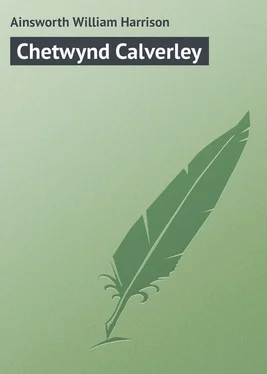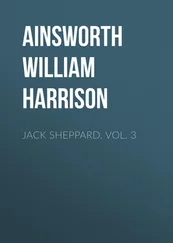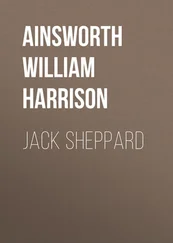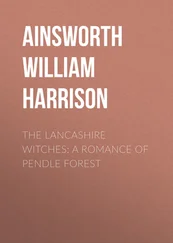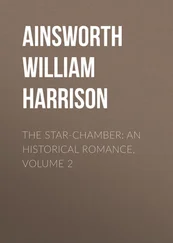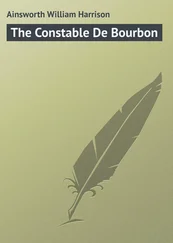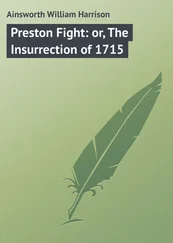William Ainsworth - Chetwynd Calverley
Здесь есть возможность читать онлайн «William Ainsworth - Chetwynd Calverley» — ознакомительный отрывок электронной книги совершенно бесплатно, а после прочтения отрывка купить полную версию. В некоторых случаях можно слушать аудио, скачать через торрент в формате fb2 и присутствует краткое содержание. ISBN: , Жанр: foreign_language, foreign_prose, на английском языке. Описание произведения, (предисловие) а так же отзывы посетителей доступны на портале библиотеки ЛибКат.
- Название:Chetwynd Calverley
- Автор:
- Жанр:
- Год:неизвестен
- ISBN:http://www.gutenberg.org/ebooks/49680
- Рейтинг книги:3 / 5. Голосов: 1
-
Избранное:Добавить в избранное
- Отзывы:
-
Ваша оценка:
- 60
- 1
- 2
- 3
- 4
- 5
Chetwynd Calverley: краткое содержание, описание и аннотация
Предлагаем к чтению аннотацию, описание, краткое содержание или предисловие (зависит от того, что написал сам автор книги «Chetwynd Calverley»). Если вы не нашли необходимую информацию о книге — напишите в комментариях, мы постараемся отыскать её.
Chetwynd Calverley — читать онлайн ознакомительный отрывок
Ниже представлен текст книги, разбитый по страницам. Система сохранения места последней прочитанной страницы, позволяет с удобством читать онлайн бесплатно книгу «Chetwynd Calverley», без необходимости каждый раз заново искать на чём Вы остановились. Поставьте закладку, и сможете в любой момент перейти на страницу, на которой закончили чтение.
Интервал:
Закладка:
Evidently, from their peculiar garb, tawny skin, black eyes, and raven locks, these individuals were gipsies. They did not leave their purpose in doubt for a moment, but rushing towards the ladies with threatening gestures, shouted to them to stop.
Mrs. Calverley tried to whip on the ponies, but before they could start off they were checked by one of the gipsies, who seized the reins, while his comrade, addressing Mrs. Calverley, demanded her whip, and, as she hesitated to give it up, he snatched it from her, and threw it on the ground.
“Excuse my freedom, my lady,” he said, in accents meant to be polite, but that sounded gruff and menacing. “We can’t allow you to go till we’ve had some talk with you; but we won’t detain you longer nor we can help. We wants any money you may have about you, together with ornaments, rings, watches, ear-rings, and sich like. Deliver ‘em up quietly, and you won’t be molested – will they, Ekiel?”
“No,” replied the other ruffian, who stood at the heads of the ponies. “It would hurt our feelin’s to use wiolence to two sich lovely creaters.”
Meanwhile, Mildred, who wished to preserve her watch, which had been given her by her father, was trying to detach it from the guard, but could not accomplish her object without attracting the attention of the gipsy near Mrs. Calverley.
Dashing round to the other side of the carriage, he caught hold of the chain, and broke it, but failed to secure the watch.
Mildred screamed loudly, though she had little expectation of help.
“Look quick, Clynch!” shouted Ekiel, in a warning voice.
“Give me the watch without more ado!” cried the gipsy to Mildred.
But she spread her hands over it, and redoubled her outcries.
“Here, take my purse and begone!” said Mrs. Calverley.
“Thank ye, my lady,” rejoined Clynch, quickly appropriating the purse. “But that’s not enough. We must have everything you’ve got about you!”
“You shall have nothing more, fellow!” cried Mrs. Calverley, with great spirit. “And see! assistance is at hand! If you stay a minute longer you will be caught!”
And, as she spoke, a gentleman was seen galloping towards them, followed by a groom.
Baulked of their prey, the gipsies ran off, and made for the morass, with the intricacies of which they seemed well acquainted.
A minute or so afterwards their deliverer came up. A fine-looking young man, between twenty and thirty, and having decidedly a military air, but a stranger to them both.
VII. CAPTAIN DANVERS
“The robbers have taken, my purse,” replied Mrs. Calverley; “and but for your timely aid, they would have carried off all our ornaments.”
“My chain is gone,” said Mildred. “But I don’t mind it. They did not get my watch, which I value extremely. I owe its preservation entirely to you, sir,” she added, with a grateful look at the stranger.
“I am happy to find I have been of any service to you,” he replied, bowing. “Follow the rascals, Tom,” he added to his groom, “and try to capture one or both of them.”
“Impossible, I fear, captain,” replied the groom. “They can go where no horse can go in that marsh, if they know the ground, as they seem to do. But I’ll do my best.”
And he speeded after the fugitives, who were still in sight.
“Hold the reins for a minute, Mildred, while I pick up my whip,” said Mrs. Calverley.
“Allow me!” cried the stranger.
And, jumping down from the saddle, he presented the whip to Mrs. Calverley, who gracefully acknowledged the attention.
“We are really very much indebted to you, sir,” she said.
“You greatly overrate the service,” he rejoined. “I have literally done nothing. Hearing cries, and perceiving you were stopped by robbers, I galloped on to your aid – that is all.”
“May we learn the name of our deliverer?” she asked.
“I am Captain Charles Danvers,” he replied; “nephew to Sir Lycester Barfleur, of Brackley Hall, which you can see through the trees yonder. But I dare say you know the place?”
“We were on our way thither, to call on Lady Barfleur, when we met with this alarming adventure,” observed Mrs. Calverley.
An idea seemed suddenly to occur to Captain Danvers.
“Are you not Mrs. Calverley, of Ouselcroft?” he inquired.
She replied in the affirmative; adding, “And this is my step-daughter, Miss Calverley.”
“I felt convinced of it!” he cried, again bowing. “I am indeed fortunate in obtaining an introduction to a young lady of whom I have heard so much.”
“You can pay compliments as well as rescue ladies from robbers, it seems, Captain Danvers,” observed Mildred, slightly blushing. “We should have met you, I have no doubt, at Brackley Hall.”
“Very likely,” he rejoined. “But I prefer an accidental meeting of this kind; it is more romantic. I hope you are not going to turn back. If you are, you must allow me to escort you. But they will be delighted to see you, I am sure, at Brackley, and you can recount your adventure to them.”
“And extol your gallantry at the same time, Captain Danvers,” laughed Mildred. “I have quite recovered from my fright, mamma, so I think we may as well go on.”
“Do, by all means!” cried Captain Danvers, vaulting on his horse.
Mrs. Calverley assented; and they were just setting off, when the groom was seen returning, so they waited until he came up.
“I see you have failed, Tom,” said his master.
“Yes, captain,” replied the man, touching, his hat. “I’m very sorry, but it was no use attempting to follow them. I should have got over head and ears in a quagmire.”
“Immediate information of the robbery must be given to the police at Frodsham,” said Captain Danvers.
“It is scarcely worth while to take any more trouble about the matter,” said Mrs. Calverley. “My purse had very little in it.”
“And I don’t care much for my chain, since my watch is safe,” added Mildred.
The party then set off, but not at a very quick pace, for Captain Danvers rode by the side of the pony-carriage, and chatted with its fair occupants.
VIII. BRACKLEY HALL
Captain Danvers lias already been described as a handsome young man of about five-and-twenty, and it may now be added that he was tall, well-made, and had marked features – the manly character of his physiognomy being heightened by his brown moustaches.
A dark velveteen shooting-coat, boots of supple leather, that ascended to the knee, where they were met by a pair of knickerbockers – loose, Dutch-looking trousers – formed his costume, while his brown curling locks were covered by a black felt hat. Such as it was, the dress suited him, and both ladies thought it very becoming.
Captain Danvers was in a cavalry regiment, which was quartered at Madras, and he had recently come home on leave. His father, Sir Gerard Danvers, resided at Offham Court, in Kent, and was thought very wealthy. Unluckily Charles Danvers was not an eldest son.
The party had now entered the park, and were proceeding along a fine avenue leading to the house, which stood right in front of them.
Brackley Hall, which was in admirable preservation considering its great antiquity, dated back to the period of Edward the Fourth, or even earlier.
Constructed almost entirely of timber and plaster, it was remarkable for the singularity of its form. It was only three storeys high, the upper storey projecting far beyond the lower, but the summit of the building was occupied by a lofty gallery, more than a hundred feet in length, that looked externally like a lantern, since it had continuous ranges of windows on every side.
Читать дальшеИнтервал:
Закладка:
Похожие книги на «Chetwynd Calverley»
Представляем Вашему вниманию похожие книги на «Chetwynd Calverley» списком для выбора. Мы отобрали схожую по названию и смыслу литературу в надежде предоставить читателям больше вариантов отыскать новые, интересные, ещё непрочитанные произведения.
Обсуждение, отзывы о книге «Chetwynd Calverley» и просто собственные мнения читателей. Оставьте ваши комментарии, напишите, что Вы думаете о произведении, его смысле или главных героях. Укажите что конкретно понравилось, а что нет, и почему Вы так считаете.
